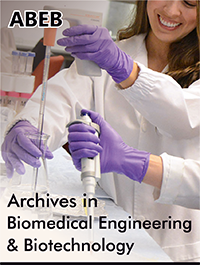 Research Article
Research Article
Epigenetic Information-Body Interaction and Information-Assisted Evolution from the Perspective of the Informational Model of Consciousness
Florin Gaiseanu*
Principal Senior Researcher (Professor), Science of Information and Technology Bucharest (Romania), and Barcelona (Spain).
Florin Gaiseanu, Principal Senior Researcher (Professor), Science of Information and Technology Bucharest (Romania), and Barcelona (Spain).
Received Date:June 28, 2019; Published Date:July 09, 2019
Abstract
Introduction: the objective of this investigation is to analyses the advances in understanding in the epigenetic processes and to extract conclusions concerning the information-based evolution from the perspective of the Informational Model of Consciousness (IMC).
Analysis of epigenetic mechanisms: it is shown that the study of the epigenetic mechanisms are of increasing interest not only to discover the responsible mechanisms of some diseases, but also to observe the acquisition and transmission mechanisms of some traits to the next generation/ trans generations, without affecting the DNA sequences. These advances were especially supported by the spectacular progresses in the high technological tools like digital microfluidic techniques and semiconductor-based detection systems, allowing to apply sequencing methods of DNA and to observe its structural modifications. The specific typical steps of the epigenetic mechanisms are analysed, showing that these mechanisms could be fully described in terms of information, as signal transmission agents embodying or disembodying information in three different stages and under specific conditions, including especially the signal persistence as a main conditional epigenetic factor.
Result: concerning the information-assisted evolution from the perspective of IMC: the epigenetic mechanisms are discussed as a function of each component of the informational system of the organism, consisting in memory, decisional operability, emotional reactivity, metabolic driving processes, genetic transmission, genetic info-generator and the info-connection explaining the special extra-power properties of the mind. It is shown that the epigenetic mechanisms could be related to the specific functions of each informational component, mainly exhibiting five levels of integration of information as matter-related information, culminating with the stable integration in the procreation cells and transmission to the next generation. The results were extended to explain the transgenerational adaptive processes of isolated population groups.
Conclusion: the epigenetic mechanisms discussed within IMC allow to understand the transgenerational adaptation as an information-assisted process.
Keywords: Information; Epigenetic mechanisms; Epigenetic transmission to the offspring; Informational components; Information-assisted evolution; Transgenerational inherited adaptation
-
Florin Gaiseanu. Epigenetic Information-Body Interaction and Information-Assisted Evolution from the Perspective of the Informational Model of Consciousness. Arch Biomed Eng & Biotechnol. 2(2): 2019. ABEB.MS.ID.000532.
-

This work is licensed under a Creative Commons Attribution-NonCommercial 4.0 International License.






